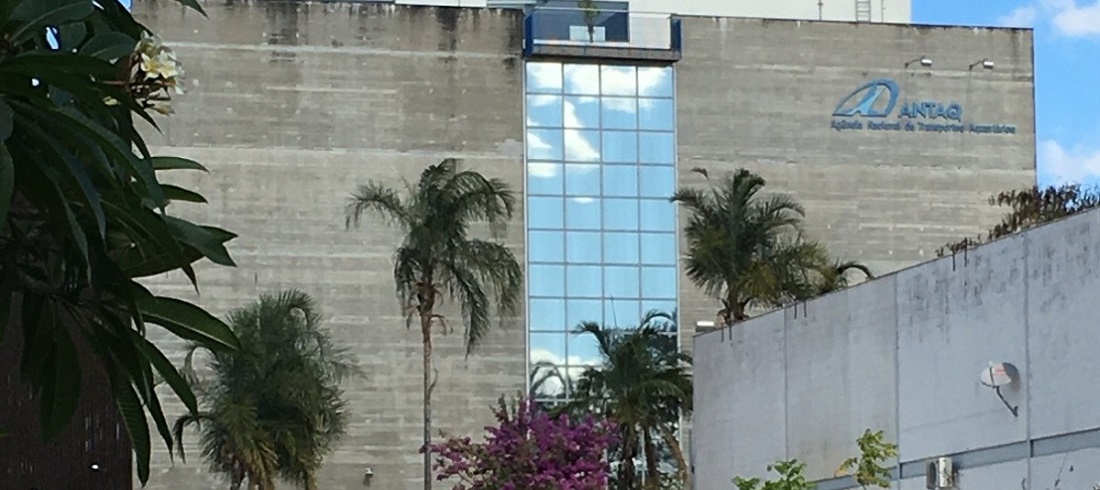
Brazil records over 38 million tonnes of goods through waterway network
Jun, 28, 2023 Posted by Gabriel MalheirosWeek 202325
More than 38 million tonnes of goods were transported through Brazil’s waterway network in 2022, according to data from the National Waterway Transport Agency (ANTAQ). The report highlights a 5.36% increase compared to 2021 and emphasizes the Amazon and Tocantins river basins, which accounted for 76% of inland transport in the country, with 14.5% and 13.1% growth rates, respectively.
The growth of the waterway transportation sector aligns with sustainable practices, as it is more environmentally friendly than road transport. Water transport is 29 times more energy efficient and consumes 19 times less fuel than road transport. Additionally, it emits six times less carbon dioxide.
In the public document, Eduardo Nery Machado Filho, the Director General of Antaq, highlights the essential role of cargo transportation through Brazil’s waterway infrastructure in facilitating the flow of commodities and emphasizes the positive impacts of this mode of transport on the country’s economy.
The report also addresses Antaq’s efforts in pursuing port modernization, an initiative viewed favorably by industry leaders. The Association of Port Terminals and Cargo Transshipment Stations in the Amazon Basin (Amport), which represents 12 important players in the sector, celebrates the indicators and emphasizes the importance of actions to improve efficiency, sustainability, cost reduction, and address operational challenges.
Flávio Acatauassú, President of Amport, commented on the figures presented in the Waterway Panel 2022, which include data from port facilities. The northern region is recognized for transporting over 138 million tons last year, representing a positive variation of 12% compared to 2021.
According to the survey, Private Use Terminals (TUPs) handled over 100 million tonnes, while Organized (Public) Ports handled more than 38.3 million tonnes. “Our associates transported around 52 million tonnes of the total 100 million tonnes reported. These numbers consolidate the northern region as fundamental for the flow of national products and relevant for the economy,” he emphasized.
Acatauassú also stresses the need for increased investment in infrastructure and public policies to meet the sector’s demands and make the Arco Norte cargo corridors more attractive. This position aligns with a recent survey by the National Confederation of Agriculture and Livestock (CNA), which revealed that in 2022, the ports of Arco Norte surpassed the volume of grain exports of the Santos port, the largest port complex in Latin America, for the first time.
The study demonstrates that the Arco Norte ports of Itacoatiara, Santarém, Barcarena, Santana, São Luís, Sergipe, and Ilhéus collectively moved over 52 million tonnes of soybeans and corn last year, surpassing the volume throughput in Santos, which was 46.8 million tonnes. Acatauassú explains the importance of operations in the North and Northeast states and emphasizes that Pará and Maranhão accounted for over half of the total soy and corn exports through Arco Norte ports. For instance, in the port complex of Barcarena, including TUPs and the port of Vila do Conde, more than 17.4 million tonnes were transported, while Santarém handled an additional 5.9 million tonnes.
“Pará and Maranhão accounted for more than half of the total soy and corn exported through the ports in the Arco Norte region. For example, in the port complex of Barcarena, which includes TUPs and the port of Vila do Conde, more than 17.4 million tonnes were transported, and in Santarém, another 5.9 million. The fact that the Arco Norte ports surpass the port of Santos shows that the tendency of Arco Norte to take over a significant portion of exports from Brazil is becoming an increasingly feasible reality and sheds light on the need for investment in projects and innovative solutions to boost logistical activities, focused on a more sustainable modal,” declared Flávio, in addition to concluding that “these are results that demonstrate that the region has conditions to consolidate itself as a reference for Brazilian foreign trade. This year, the expectation is for a record movement of these commodities.”
-
Sugar and Ethanol
Nov, 01, 2023
0
A World Desperate for Sugar Sees It Pile Up in Brazilian Ports
-
Ports and Terminals
Mar, 15, 2023
0
National ports secretary studies management options for the Port of Santos
-
Ports and Terminals
Aug, 10, 2020
0
Port of Imbituba handles special operation to load 184-ton power transformer
-
Meat
Jan, 11, 2023
0
Brazilian poultry exports closed 2022 at record high



